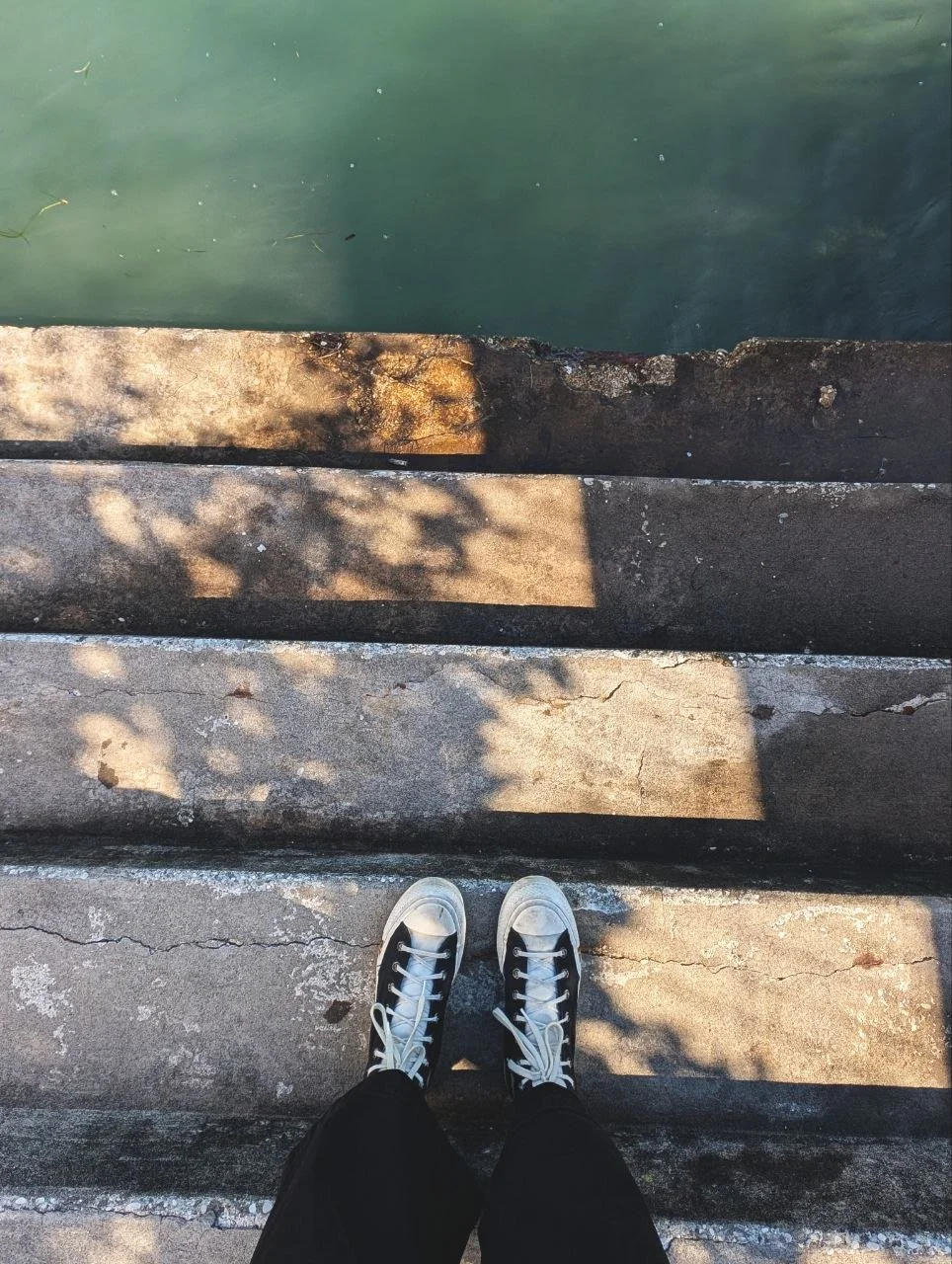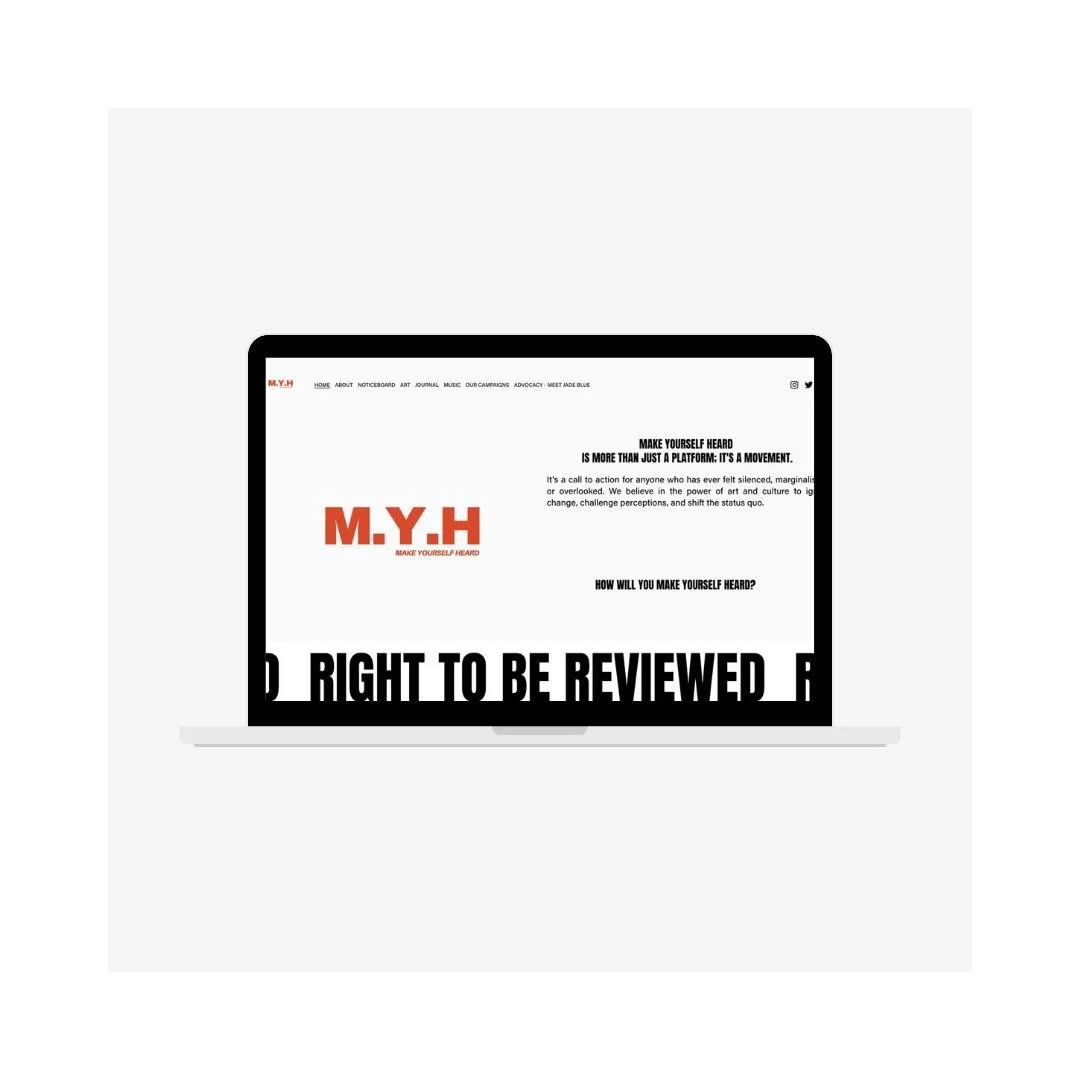No Perfect Time, Only Now
On hesitation, imposter syndrome, and creating Make Yourself Heard
I’ve been putting off launching Make Yourself Heard (M.Y.H) for a long time. The idea has been with me for years - scribbled in notebooks, swirling in late-night thoughts, appearing in conversations with friends - but I hesitated. It wasn’t because I doubted the need. Quite the opposite: I knew how vital it was for survivors to have spaces that belong to us, not just about us. What held me back was fear. Fear of stepping into a role I didn’t feel qualified for. Fear of being judged. Fear that people would look at me and wonder: Who is she to start something like this?
That’s the grip of imposter syndrome. It tells you to shrink when you want to stand tall. It whispers that your voice doesn’t count, even when your lived experience is the very reason you need to speak. It convinces you that unless you’re perfect, polished, certain, and unshakeable, you have no right to lead. For a long time, I listened to that voice. And yet, another voice inside me - quieter but steadier - kept insisting: this isn’t just about you. It’s about all of us.
My Journey to Speaking Out
I never planned to become a campaigner. I never imagined my name would be connected to discussions about justice, or that I’d one day waive my anonymity as a survivor of sexual violence. In truth, all I wanted was to heal and for the justice system to treat me fairly.
But the system failed me, as it has failed so many others. When the Crown Prosecution Service dropped my case, using a defence I’d never even heard of - “sexsomnia” - it felt like a second violation. Years of waiting, of courage, of building myself up to face court, and suddenly it was gone. I challenged that decision, and eventually sued the CPS for the harm their failures caused. However, while compensation was one outcome, what mattered more to me was the truth: a recognition that the system had failed and that it must learn.
Through that process, I realised something painful but powerful: silence only serves those in power. As survivors, we are so often reduced to statistics, case studies, anonymous “victims” in reports. But behind every statistic is a human being with a story, with a voice. When I finally spoke publicly about my experience, it wasn’t easy. It was terrifying. But the messages I received from other survivors - saying “this happened to me too,” “thank you for speaking,” “I feel less alone now” - showed me that breaking silence isn’t just personal. It’s collective.
Why I Put It Off for So Long
So why did I delay launching M.Y.H, even when I knew how much it mattered? The honest answer: because it felt heavy.
Starting something survivor-led comes with a weight of responsibility. You don’t want to get it wrong. You don’t want to retraumatise people. You want to create a space that feels safe, welcoming, and meaningful - and that’s a high bar to set.
Then there was the nagging voice of self-doubt. I asked myself: Am I the right person? Am I strong enough? What if no one cares? What if people think I’m doing this for the wrong reasons? I worried that by putting myself forward, I was making it about me, when in truth I wanted the opposite: to build something collective.
Looking back, I see that this hesitation was part of the process. I needed time to sit with those fears, to learn, to grow, to heal a little more. And maybe, just maybe, I needed to prove to myself that even with imposter syndrome, I could still act.
Why I Finally Did It
The turning point came when I realised that waiting for the “perfect” time was a trap. There is no perfect time. Every day, people are let down by a justice system that is supposed to protect them. Every day, survivors feel isolated, unheard, and powerless. Every day, opportunities for solidarity and creativity slip by if we don’t seize them.
I also realised that M.Y.H was never meant to be mine alone. It’s not about one survivor’s story, but about building a platform where many voices can come together. Once I shifted the focus away from myself and onto the collective, the fear started to loosen its grip.
The Power of Unity and Collective Voice
One survivor speaking out can open a door. Many survivors speaking together can break down the walls. That’s the power of collective voice.
We’ve seen it in movements like #MeToo, where a chorus of voices made it impossible to look away. We’ve seen it in campaigns that changed laws, policies, and cultural conversations. But just as importantly, we’ve seen it in the quiet solidarity between survivors who recognise each other’s pain and strength.
M.Y.H is built on that belief: that unity is our greatest tool. When survivors share stories, when we link arms across differences, when we amplify one another rather than compete for space - we become unstoppable.
Creativity as Resistance and Healing
But unity alone isn’t enough. To shift culture, we need creativity. Facts and statistics are essential, but they don’t change hearts on their own. Art, music, storytelling - these reach people in ways that data never can.
That’s why M.Y.H weaves creativity into everything it does. Whether it’s through music selections, journals, or artwork. Creativity gives survivors new ways to express what often feels unspeakable. For me, music and art have been lifelines. They’ve allowed me to process pain, to reclaim joy, to connect with others beyond words.
Creativity is resistance. It says: We will not be defined only by what happened to us. We will create beauty, meaning, and power out of our experiences. It’s also healing. When we share our creativity, we invite others into our world - and in that sharing, we find connection, solidarity, and sometimes even joy.
Building Something New
So what is M.Y.H, really? It’s a platform, a movement, and a community. It’s survivor-led and survivor-centred. It’s a space where voices are amplified, not silenced. It’s a home for creativity, solidarity, and action.
M.Y.H has strands:
Journal - a place for stories, reflections, and lived experience.
Art - showcasing creative responses to trauma and resilience.
Music - because sometimes a song says what words can’t.
Noticeboard - connecting survivors to resources, campaigns, and solidarity.
Campaigns - such as Right to Be Reviewed, which advocates for making the CPS Victims’ Right to Review pilot permanent, national, and statutory.
It’s not a charity, a service, or an institution. It’s a living, breathing movement rooted in the voices of survivors.
Looking Ahead
When I finally pressed “launch,” it wasn’t because the fear had gone. It was because I understood that fear will always be there, but it doesn’t have to win. Imposter syndrome may whisper that I’m not enough, but the truth is: no one of us is enough on our own. That’s the point. Together, we are more.
Looking ahead, I want M.Y.H to be a space that grows with its community. A space where survivors feel ownership, not just participation. A space that influences policy, yes, but also culture - through creativity, storytelling, and collective courage.
Most of all, I want M.Y.H to remind every survivor: your voice matters. You don’t need to be the loudest, the strongest, or the most polished. You just need to be heard.
Launching M.Y.H was the scariest thing I’ve done - scarier, in some ways, than speaking out publicly about my own case. Because this is bigger than me. It’s a commitment to holding space for others, to listening, to learning, and to acting together.
I still feel the weight of responsibility. I still hear the whispers of self-doubt. But I also feel something stronger: a sense of solidarity. The knowledge that this isn’t about one person, but about many. The belief that when we come together - in unity, in creativity, in courage - we can change the story.
So here it is: Make Yourself Heard. Launched, at last. Not perfect, not finished, but alive.
Because survivors deserve more than silence. We deserve to be heard.


